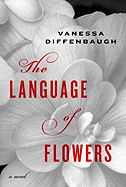
Victoria Jones is untrusting and unlovable. At 18, she's maxed out on her available time in foster or group home care, as her easy-to-revile caseworker Meredith emphasizes. As this debut novel opens, Victoria is on the streets of San Francisco. She's uninspired, unafraid and in no hurry to succeed.
Chapter two flashes back to Victoria at 10, as Meredith delivers her to Elizabeth, her "last chance" foster mother. The first-person voice and the past-and-present format, rather than creating a choppy narrative, give insights into Victoria's life and flesh out her motivations. Despite Victoria's resistance to love and her rock-bottom self-image, Elizabeth nurtures her, and plants the seeds of her life-long study of the language of flowers. "Common thistle is everywhere," she says, "Which is perhaps why human beings are so relentlessly unkind to one another."
A tragedy ends her placement, but when Victoria is emancipated she draws on that memory of true mothering and her talent with flowers and their symbolism to build a life. Healing her spirit takes longer; we ache to support her as Grant, a flower farmer, Renata, her boss, and, eventually, her own daughter offer her love.
Vanessa Diffenbaugh weaves plant meanings throughout the story and includes "Victoria's Definition of Flowers" at the end of the book. She has launched a nonprofit foster-child support movement, camellianetwork.org. Readers of this heartbreaking and hopeful novel will be moved to respond, if only to plant Canterbury bells (for gratitude). --Cheryl Krocker McKeon, bookseller

